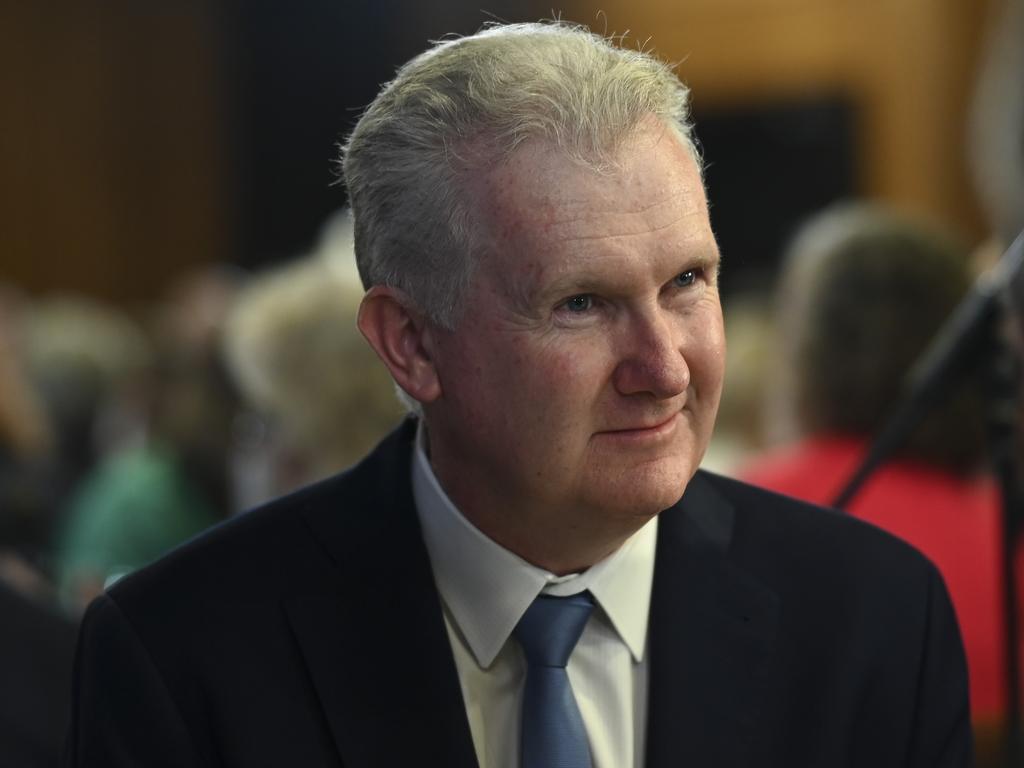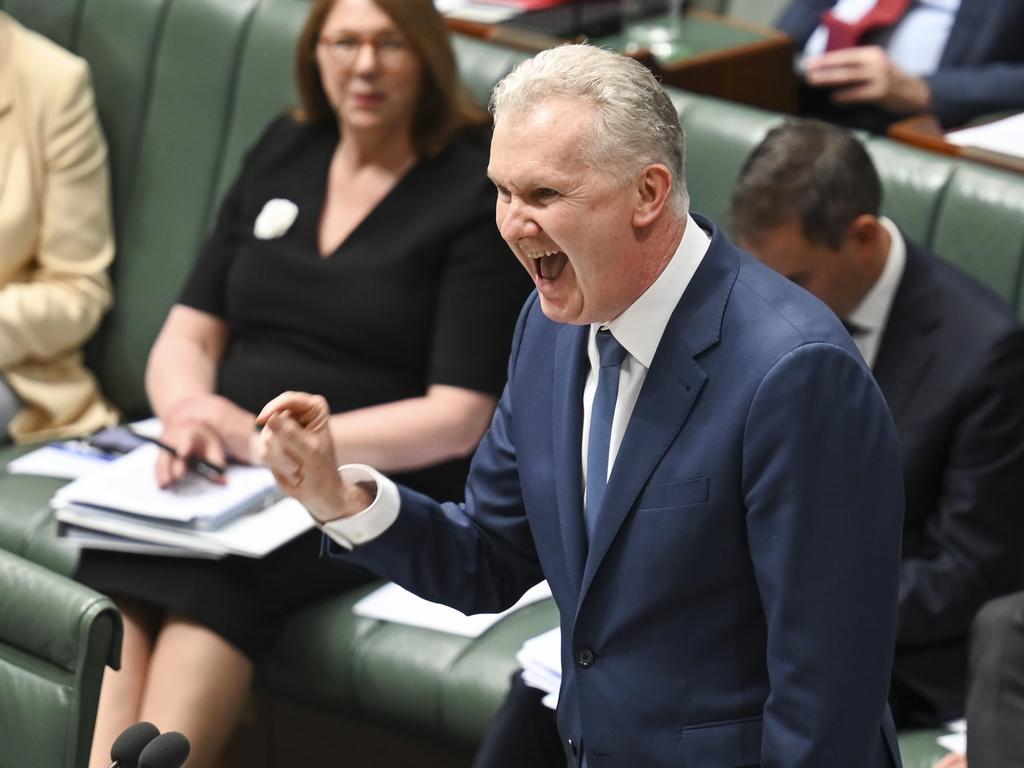Crossbench senators put brakes on Labor’s IR bill over concerns for small businesses
The Albanese government will be forced to make substantial changes to its industrial relations bill after Senate crossbenchers expressed significant concerns.

The Albanese government will be forced to make substantial changes to its industrial relations bill after Senate crossbenchers expressed significant concerns and called for a raft of amendments to change or delay the reforms.
In separate reports accompanying a Senate inquiry report tabled on Thursday, David Pocock and Jacqui Lambie called for changes to key aspects of the bill, including proposed new rights for casuals, gig workers and union delegates.
Senator Lambie said she did not support the bill’s proposed introduction of a new definition of employment, vehemently opposed by builders, while Senator Pocock said the change should be delayed by 12 months.
The government, which needs either Senator Pocock or Senator Lambie to pass the bill through the upper house, also faces crossbench resistance to its proposal to give workers the legal right to disconnect from their bosses outside work hours.
Senator Lambie said the bill, if passed in its current form, would have “significant economic consequences” for businesses and employers. “It has the capacity to contribute to cost-of-living pressures, harm businesses by increasing red tape, create confusion and complexity, discourage innovation, create barriers for employers seeking to hire staff, and drive-up costs,” she wrote.
Nominating proposed changes to the casual workforce, workplace delegates’ rights, and right of entry for union representatives as especially concerning, Senator Lambie said the JLN had particular concern for small businesses and owner drivers in the transport industry under the legislation.
“This bill challenges the status quo. The JLN acknowledges that some change to the employment landscape is necessary, but further scrutiny and investigation from industry stakeholders, government, and the public at large is key to getting this right,” she said.
Senator Pocock said while he was committed to working through the bill with the government, further amendments were required to the legislation before he could contemplate supporting it. He said the employee-like aspect of the changes went “far beyond the scope of capturing the gig-platform courier drivers” and would have an impact on businesses such as aged-care providers.
“It is important that the reforms only capture those they intend to,” Senator Pocock said.
He called for amendments to require that a person satisfied two or more characteristics in order to be an employee-like worker and should include a general carve out for building and construction contractors (who are not intended to be caught by the changes).
Labor senators on the upper house committee endorsed the bill including new powers for the Fair Work Commission to make “right to disconnect” stop orders against employers.
As Business Council of Australia chief executive Bran Black accused the government of rushing through the proposal and called for a delayed introduction date, Senator Pocock said the amendment should be released publicly, with additional safeguards needed to minimise vexatious complaints.
Coalition members said the “fatally flawed” bill, which will be brought on for debate next week when parliament resumes, should be opposed, as “it is bad for jobs; it is bad for workers, and it is bad for employers”.
The committee’s chair, Labor senator Tony Sheldon, said the almost five-month inquiry, comprising seven public hearings and 175 submissions was the most exhaustive on industrial relations legislation since the inquiry into the Fair Work Act in 2008.
“This inquiry has laid bare the ways employers like Qantas, Mable and BHP have used loopholes to rip off their workers and undermine the intent of our workplace laws,” Senator Sheldon said.
He said a legislated right to disconnect was in line with requests from teachers, police officers and other workers dealing with intensified workloads and a blurred line between work and personal time.
Greens senator Barbara Pocock said the minor party would continue to work with the government and other crossbench senators to improve provisions around intractable bargaining, casual work and a right to disconnect.
Australian Industry Group chief executive Innes Willox said the inquiry report was a valuable contribution that highlighted the shortcomings of the legislation.
Australian Chamber of Commerce and Industry chief executive Andrew McKellar said the report reflected many concerns raised by business. “The bill is fundamentally flawed and the Senate should do the right thing and reject it,” he said
Master Builders chief executive Denita Wawn said she welcomed Senator Lambie’s shared concerns that introducing a definition of employment undermined legally binding contracts.
Workplace Relations Minister Tony Burke and the ACTU both declined to comment on the inquiry’s findings.








To join the conversation, please log in. Don't have an account? Register
Join the conversation, you are commenting as Logout